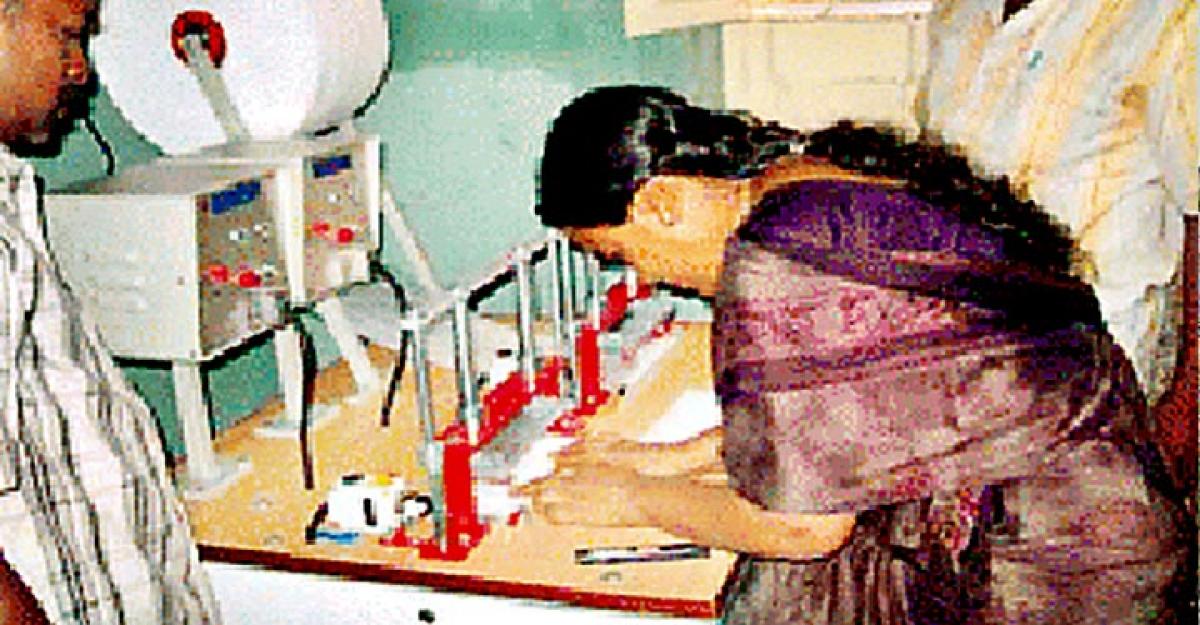Live
- Six Useful Strategies to Control Your Heart During the Pollution Season
- Phalodi Satta Bazar Predicts Close Race in Maharashtra Assembly Election 2024
- Federer Pays Heartfelt Tribute to Nadal Ahead of His Retirement: "An Epic Career"
- Odisha holds successful mega investors roadshow in Singapore
- PGTI Tour: Top stars to fight for honours in Servo Masters Golf
- SC upholds termination of LIC employee for absenting himself without intimation
- ‘Stone me or shoot me, won’t spare anyone,’ says Anil Deshmukh after discharge
- Siddaramaiah, Shivakumar turning Karnataka into Pakistan: K’taka BJP
- Zimbabwe records 70 suspected cholera cases, one death amid new outbreak
- Babri demolition day: No Assembly proceedings in Bengal on Dec 6
Just In

Employment generation is a vital facet of any country’s development strategy. This is more so in the case of India where population growth has been quite high and over 65 per cent of the population reside in rural areas.
Employment generation is a vital facet of any country’s development strategy. This is more so in the case of India where population growth has been quite high and over 65 per cent of the population reside in rural areas.
Nearly half the addition to the Indian labour force over the next 15 years will be in the age group of 30 to 49 years even while the share of this age group in China, Japan and South Korea will be decreasing. It is estimated that by 2030 the country’s workforce would be larger than that of China.
.jpg) Presently a dimension of the unemployment problem is the inequalities and disparities that exist in access to employment opportunities across regions and social groups.
Presently a dimension of the unemployment problem is the inequalities and disparities that exist in access to employment opportunities across regions and social groups.
According to the India Labour & Employment Report 2014, States such as Bihar, Odisha, Uttar Pradesh and Madhya Pradesh which are generally considered backward face the worst on all indicators of good quality employment as the historically deprived groups – SCs and STs – reside in these States.
Obviously, the need of the hour is labour-intensive industries and this has been harped again and again. In this connection, it is significant to mention that micro, small and medium enterprises (MSMEs) have urged the Government to provide them tax breaks based on employment generation for a large number of people.
The MSME sector contributes about 8 to 10 per cent to India’s GDP and has been recommended a capital infusion of Rs 24,000 crore under the 12th Five Year Plan. But though its growth is imperative for balance economic development, there is perverse incentive in replacing jobs with capital-intensive automisation, following the model of Western countries, where labour is in short supply and its costs are inordinately high.
However, in recent times some encouragement is being given to this sector and the SBI Chairman recently stated that the MSME units, who are either not able to get loans and have to depend on unscrupulous lenders, can now get hassle-free loans at a very competitive pricing. Online sanction process in this regard is also being considered.
The development experience of Asian countries like South Korea, Taiwan, China and also Japan in their later phase shows that the MSME sector with government’s help and direct involvement has been the key to economic prosperity.
In such a situation, the recent report by industry body, Nasscom – Perspective 2025 – has been a cause for concern. It stated that while three million jobs were generated in reaching the first $100 billion revenue by 2014, the same will not be possible in doubling the turnover and only 1.2 to 2 million jobs can be added only.
The massive Skills India Mission, announced by the Prime Minister recently, should go a long way in imparting all types of training geared towards skill development and the IT and various other sectors would greatly benefit from this. But a lot of investments would be required and the Government should make the resources available.
Good monitoring, financial subsidy to students, varied job opportunities and periodic change of study materials, as per needs and demands of the industry are some of the factors in achieving successful skill development by our neighbour, where low-cost products of various items have flooded the international market.
One needs to point out that apart from services, sectors like infrastructure, real estate, textiles, gems and jewellery are too labour-intensive. But most of these are unfortunately not growing to the desired extent.
In evolving an effective strategy to boost up employment generation, the MSME proposal has to be seriously considered in the coming Budget. Added to this is the need to diversify products of khadi and village industries and market these overseas with the government’s active help and support.
By Dhurjati Mukherjee

© 2024 Hyderabad Media House Limited/The Hans India. All rights reserved. Powered by hocalwire.com







